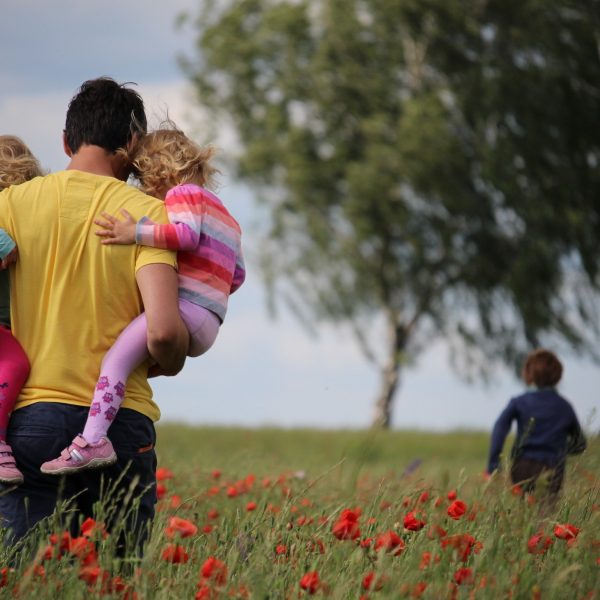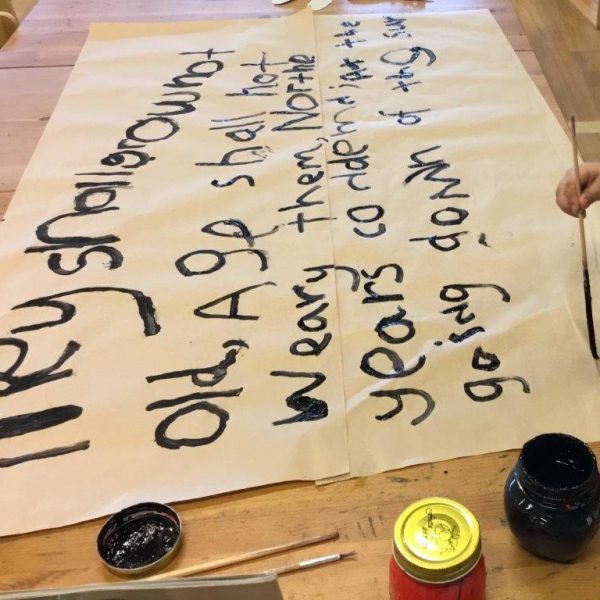The ‘invisibility of children’ of veterans needs to stop – let’s support their wellbeing instead
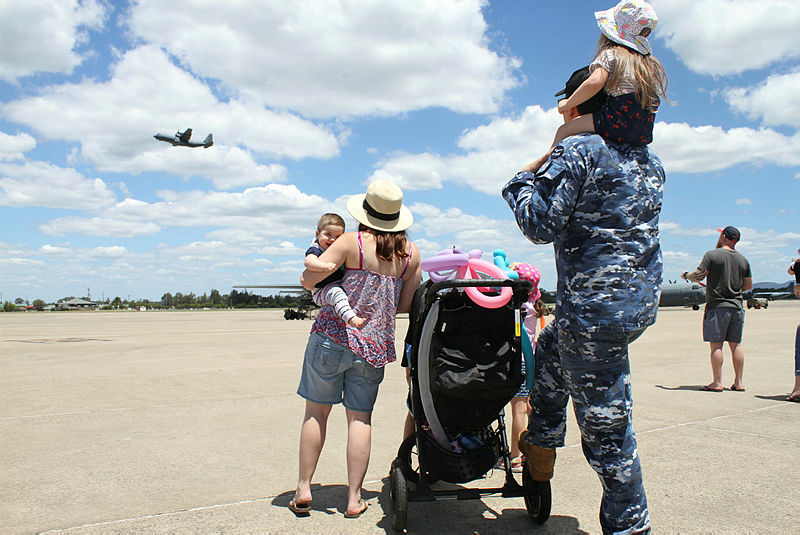
Many educators teach children from Australian Defence Force (ADF) families, or those that have transitioned from active service and are now veterans. Over 5 per cent of households have at least one person who is currently serving or has previously served (a veteran).
Given that 13 per cent of veterans need support with basic activities of self-care, understanding the potential vulnerabilities and trauma some of these families face is important for supporting these children in our early childhood settings.
The Interim Report from the Royal Commission into Defence and Veteran Suicide has given a new platform to what military family researchers have been saying for decades; ‘the welfare of the family matters’ (Interim Report, p. 86).
Children and partners of veterans suffer when their military family member has service-related physical and/or mental health conditions.
The Executive Summary of the report states: ‘we have heard numerous stories of children and families who have been adversely affected by the death by suicide of a loved one, or by deterioration in their loved one’s mental and/or physical health’ (point 12).
A 2022 study of almost 40,000 parents from US military families reporting on the mental health of their children found that parents of current military families reported fewer mental health problems in children compared to children of veterans. One reason for this could be that current military families tend to have stronger social support networks that act as a protective factor for children.
Caring for traumatised family members affects family life, which also means children’s development and wellbeing is impacted directly. The Executive Summary explains: ‘families are inexorably linked to the health and wellbeing of serving and ex-serving ADF members, and vice versa. There is insufficient awareness and recognition of the key role families play’ (point 12).
The prevalence of mental health disorders in ADF members was reported in a 2018 Mental Health and Wellbeing Study, finding: ‘high prevalence rates for lifetime mental disorders in ex-serving ADF members, with 46.4 per cent estimated to have experienced a mental disorder in the previous 12 months. 24.9 per cent of ex-serving members were estimated to have met criteria for PTSD in their lifetime, 46.1 per cent for anxiety and 47.5 per cent for alcohol disorders’ (Interim Report, 2022, p. 128).
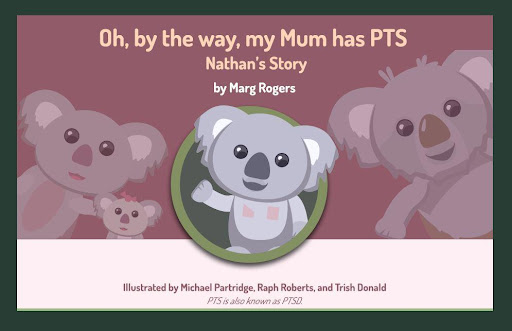
Figure 1 : Free, research-based storybook for children whose parents have service-related mental health issues (from www.ecdefenceprograms.com)
It is important for educators to know that an ADF or veteran parent’s mental health negatively impacts their children and partners via secondary transference of mental health conditions, such as post-traumatic stress disorder (PTSD).
The report says: ‘military deployment, as well as the mental and behavioural disorders arising from military service, can then increase the risk that partners, spouses, children and siblings develop mental health disorders…..children of personnel with PTSD may also experience “secondary traumatization” and exhibit similar symptoms of PTSD as their parents’ (p. 128).
Family life can be very challenging for some children in ADF and veteran families. A 2018 Australian study revealed: ‘16.8 per cent of partners and 14.4 per cent of parents were classified as showing high or very high levels of psychological distress…..11 per cent of partners and 12.9 per cent of parents of ex-serving members reported high levels of PTSD. … higher rates of suicidality among family members, with a total of 13.4 per cent spouses, 10.6 per cent parents, and 18 per cent of adult children having thought about taking their own life in the previous year’ (p. 128).
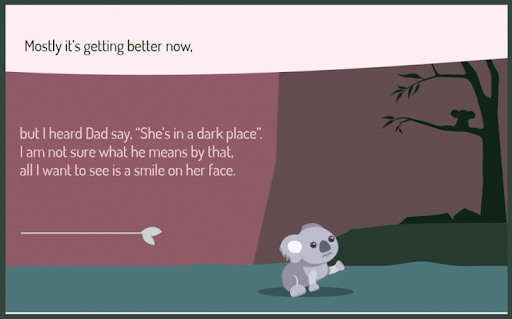
Figure 2: Research-based storybooks give a starting point for conversations between children and adults (from www.ecdefenceprograms.com)
A 2019 study reviewed 9 published research articles and found that children of parents who are deployed demonstrated more behavioural and emotional problems compared to children from non-military families.
While many children in military families show resilience and thrive in challenging environments, some show behavioural issues in early childhood settings, including displaying emotional and social problems. Understanding the emotional toll of the military family challenges on children is critical. Educators need to understand the impact of service children’s behaviour, and the need for trauma-informed practice.
The 2018 study also found ‘rates of emotional problems in the children of current ADF members (aged 2–17 years) at higher levels than community averages…. 16.9 per cent reported problems with peers, 16.9 per cent reported emotional problems, and 15.8 per cent reported hyperactivity’ (p. 128).
Given the high needs of children from ADF families, educators might expect a broad range of available resources which improve their own understanding of the challenges these children face, as well as resources to support the children themselves. However, one study revealed parents and educators were frustrated and felt isolated without appropriate resources and services.
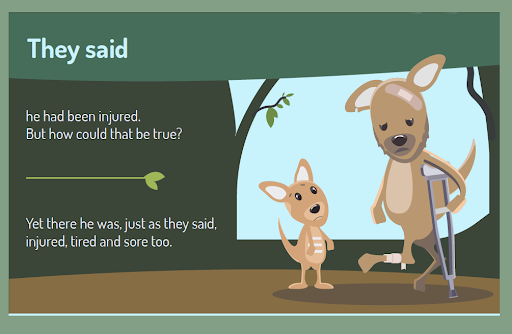
Figure 3: Research-based storybooks for children whose parents have service-related injuries or medical conditions (from www.ecdefenceprograms.com)
Our research in the Early Childhood Defence Program project showed there were almost no age and culturally appropriate resources to help them understand:
- deployment and training episodes when a parent worked away
- the frequent locations
- the household changes and stresses when a parent has service-related conditions.

Figure 4: Research-based storybook for children whose parents deploy or work away for training (from www.ecdefenceprograms.com)
The Interim Report Executive Summary reiterated this, saying ‘Information about available support is limited and the quantity, quality and accessibility to supports too varied’(point 12).
To address this gap, we received funding to co-create free, online, research-based resources.
This includes learning modules for educators and parents, research-based, downloadable children’s storybooks with accompanying educational activities, and children’s interactive apps.

Figure 5: Free, research-based modules for educators to support their efforts in assisting children from military and veteran families (from www.ecdefenceprograms.com)
To cater for children whose parents had service related health and mental health conditions, our Early Childhood Defence Program research team worked with veterans, veteran partners, their Legacy Club Services family workers and educators to co-create a few free resources for these very vulnerable children. These include interactive apps with activities to deepen children’s learning.
The story-based apps help families navigate new challenges. For example, parents and veterans said organising family events was almost impossible because the veteran might not be able to cope with extra people, noise and situations they might find overwhelming. They also said members needed a lot of preparation time to get ready for an event or a simple outing because they struggled to be mentally ready for simple interactions needed for daily civilian life. This is hard for their children to understand, so our apps support children’s understanding of these daily challenges in veteran families.
At home, parents said they often chose between attending to the children’s needs and attending to the veteran partner’s needs and they found this very stressful. Veteran parents and family workers said these children needed support in recognising their parent’s emotions and practical ways to build their own resilience.

Figure 6: Research-based interactives designed to increase children’s emotional intelligence and resilience (from www.ecdefenceprograms.com)
Before families become veterans, they need to transition from defence. Over 5000 military members transition each year, so their families face many challenges as they navigate civilian life. Transition often means moving to another location, and many choose rural and regional areas. However, travelling from regional, rural, and remote areas to receive the treatment they need places extra burdens on children and families.
Providing children and partners with more resources and access to services will benefit their wellbeing, but also the wellbeing of veterans. Our resources are a start, but many more are needed to assist these children, and support their parents and educators.
Popular

Policy
Practice
Quality
Provider
Research
Safety starts with supervision: responding to real risks in ECEC
2025-07-07 10:30:58
by Fiona Alston

Policy
Provider
Practice
Quality
Jay Weatherill appointed to co-lead urgent review into childcare safety in Victoria
2025-07-07 07:24:04
by Fiona Alston

Quality
Practice
Provider
Workforce
Reclaiming Joy: Why connection, curiosity and care still matter in early childhood education
2025-07-09 10:00:07
by Fiona Alston












